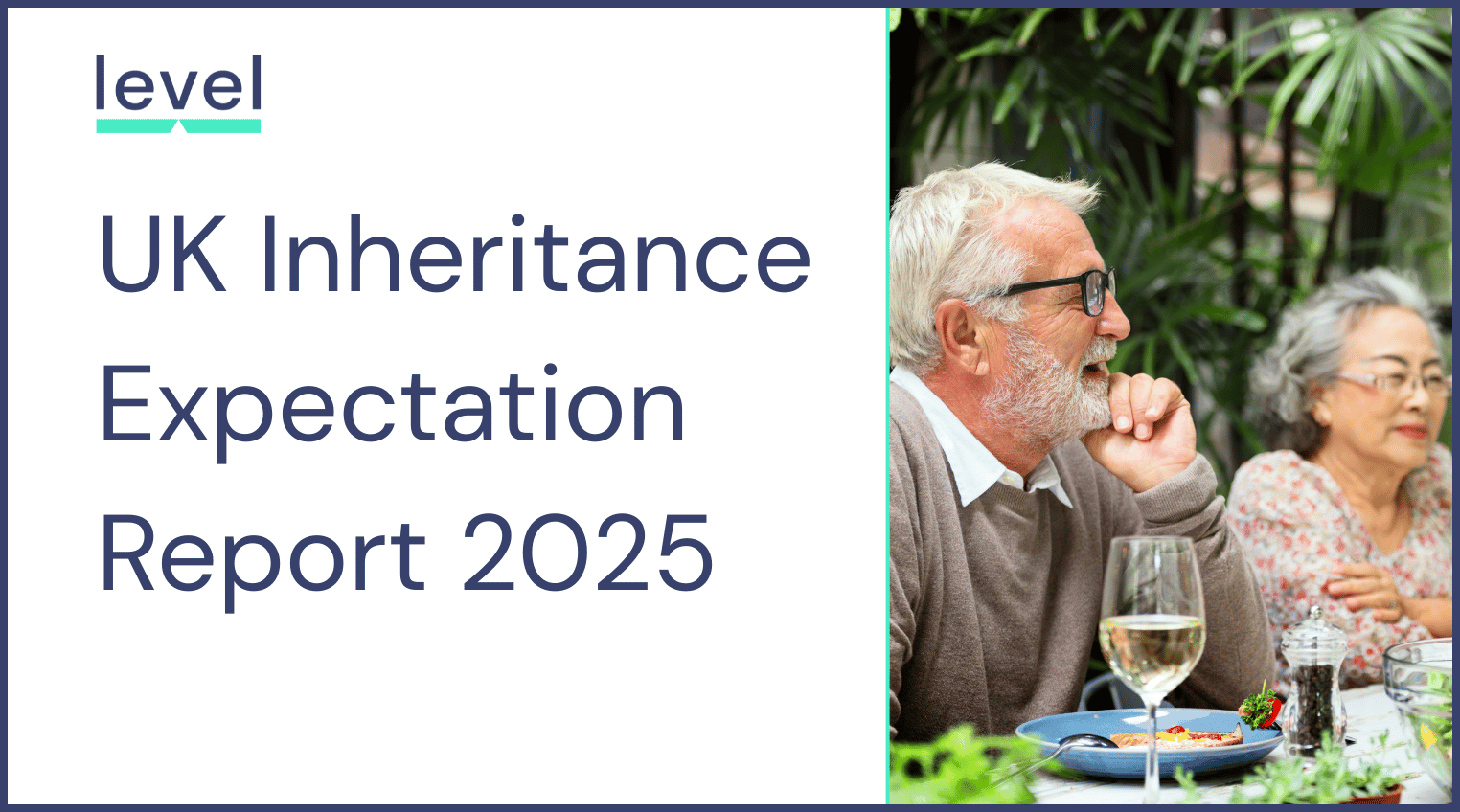
With a new residency-based tax being introduced and farms and businesses valued above £1m facing inheritance tax for the first time, there are serious implications for potential inheritance disputes.
While inheritance tax hasn’t historically been an issue for most people, experts have been predicting that these new rules will mean the number of families facing a tax bill will double by 2030, to one in ten.
This means that more people than ever may be affected by inheritance tax disputes, which naturally, is a concern for many.
Due to this, we surveyed 2,000 UK adults to investigate the nation’s attitudes and expectations surrounding inheritance, to build a clearer picture of how families in the UK could be affected by the inheritance tax threshold changes in the coming years.
We also submitted FOI requests to the Ministry of Justice to reveal the latest and historic data on how many probate disputes were recorded and how many probate cases lasted longer than one year.
How many Brits are expecting an inheritance?
Over half of Brits (54%) expect to inherit money from a loved one in the next 20 years, with a third (34%) acknowledging that they are financially depending on this to some extent.
Nearly one in ten (9%) will go into debt or further debt without the inheritance they are expecting.
In terms of age, millennials (51%) and those aged between 35-44 (47%) were revealed to be the most reliant.
Our research shows that men (39%) are more likely than women (30%) to depend on an inheritance, and that they would likely face debt or further debt if the inheritance doesn’t come through.
Of those who are relying on inheriting money, the main purposes were:
- To enable them to live a better quality of life (31%)
- For their own day to day living expenses (27%)
- To clear their mortgage (26%)
- To reduce their mortgage (25%)
- To enable them to financially support their family (23%)
Similarly, over one in five (22%) also said they were relying on this to clear credit card or loan debt.
Our research showed that those aged 18-24 are the most likely to say they’re relying on inheritance to clear credit card or loan debt (39%), while Brits aged 65+ are the most likely to be relying on inheritance so they can go on a dream holiday (21%).
In terms of contestation, nearly four in ten (38%) said they’d dispute a Will and potentially go to court if they thought the inheritance they’d received was unfair or not what they’d expected. 8% of respondents said even if they thought they might not win they would still dispute it.
Over half of those aged 25-34 (60%) were the most likely generation to dispute a will and men were more likely to say they’d do this than women (44% versus 34%).
Of all Brits who said they dispute an inheritance, 7% have already gone to court over this.
A further 22% said they ‘might’ do this, but it would depend on the circumstances.
How many probate disputes were there in the last ten years?
Over the past decade, probate disputes have been steadily rising in the UK. We requested data from the Ministry of Justice, to reveal the trends behind the stats.
Probate disputes by year:
- 2014: 7,574
- 2015: 9,150
- 2016: 8,250
- 2017: 7,781
- 2018: 8,508
- 2019: 7,268
- 2020: 8,543
- 2021: 9,926
- 2022: 9,154
- 2023: 10,409
- 2024: 8,299 (only covers Jan-Sep)
In 2023, there were an average of 867 probate disputes a month. Compared with the current 2024 trajectory, which is 992 per month on average, this shows it continues to be on an upwards curve.
Overall, probate disputes that end up in court have increased by 37% in the last decade (2023 vs. 2014 data), and a further 22% in the last five years (2023 vs. 2018). This is continuing to increase with the latest data from 2024.
The number of probate cases where time between application and grant issued is more than a year in England and Wales has also been on the rise:
- 2019: 377
- 2020: 914
- 2021: 1,383
- 2022: 1,460
- 2023: 2,158
- 2024: 2,328
The numbers indicate that the number of probate cases taking longer than one year has been steadily increasing over the past 5 years (518% increase from 2019 to 2024).
This suggests that in addition to the rising numbers of probates that are getting disputed, probate cases in general are taking longer to settle.
This could be for several reasons, including incomplete applications, disagreements between executors, and estates that involve complex arrangements, such as trusts, business interests, or international property.
Furthermore, outstanding debts and inheritance tax issues must be resolved before a probate can be granted, which can significantly slow things down.
In which cities do Brits rely on their inheritance the most?
When we looked at residents in cities across the UK, our research showed the places with the highest percentage of people expecting and financially relying on receiving an inheritance in the next 20 years:
- Bristol (42%)
- Birmingham (41%)
- London (40%)
- Newcastle (37%)
- Manchester (36%)
All the above cities were above the national average of 34%.
In addition, we saw the percentage of residents willing to go to court to dispute a Will they thought was unfair:
- London (47%)
- Manchester (44%)
- Newcastle (40%)
- Bristol (39%)
- Nottingham (38%)
London residents are most willing to dispute a will and potentially go to court, and nearly one in ten (8%) of those have already disputed a Will.
Interestingly, Birmingham ranked highly for needing to rely on future inheritance, however, they’re not even in the top 5 when it comes to disputing a will.
How do you approach inheritance tax as a conversation topic with family?
George Williamson, our founder & CEO, comments:
“The new government figures highlight a concerning rise in probate disputes, a trend we at The Level Group have long recognised.
“Our latest study shows that a significant number of Brits are counting on an inheritance to help with crucial financial commitments such as clearing their mortgages, supporting their families, or paying off debt.
“With such high expectations, it’s more important than ever for individuals to engage in proactive and thorough estate planning. Failure to do so can not only result in future disputes but may also lead to delays in probate proceedings, leaving families in financial uncertainty.
“Early and meticulous estate planning is essential to minimise these risks and ensure loved ones are not burdened by additional complications at an already difficult time.”
How can families prepare for the probate process and prevent potential disputes?
When it comes to preparing for the probate process, it’s important to firstly create or update a will, with clear, specific instructions on asset distribution and responsibilities.
Set up a durable plan of action and appoint someone for financial and healthcare decisions. Regarding organisation, sort out asset documentation as soon as possible, and keep an inventory of important records, and appoint a competent executor. It’s also key to communicate efficiently with family to avoid misunderstandings.
Likewise, if you wish to prevent disputes, it’s important to have a clear and specific will with an appointed executor. If you have doubts, seek legal counsel and involve a mediator to resolve potential conflicts. You can also use a Trust to bypass probate and keep the process private or use an independent executor to prevent family bias.
Conclusion
Our findings have revealed that millions of Brits are expecting (and relying) on an inheritance soon. If they were getting their inheritance tomorrow, they would use it for important reasons such as settling their loans or moving home. For those that are relying on their inheritance for essential reasons like day to day living expenses, a long delay in accessing the funds could create financial struggles.
While the exact figures vary up and down the country, a significant number of Brits say they are willing to go to court if they didn’t get what they expected, or thought was rightfully theirs.
At the same time, the data we obtained from the Ministry of Justice shows that we are seeing a worrying rise in probate disputes, especially those lasting longer than one year. Thus, our research highlights the need to have clear and honest conversations, alongside writing a solid will, to prevent unnecessary delays at an already difficult time for families.
If the unexpected does happen, and you need to gain access to your inheritance sooner, our advance loan can help. An inheritance advance does not have the same strict lending criteria associated with traditional types of funding, as it is secured against the money you’re entitled to from the estate.
Tell us more about your situation and we will talk you through it step by step: https://thelevelgroup.co.uk/apply/
Sources
Primary
- Survey with 2,000 UK adults, run in February 2025. Data split by respondent gender, age and nearest city.
- A new Freedom of Information request to the Ministry of Justice, for data on the number of inheritance dispute cases in UK courts in 2024 (and historically).
Secondary - A previous Freedom of Information request to the Ministry of Justice covering the above (run by law firm Nockolds and featured here).
- https://www.bbc.co.uk/news/business-36014533
- https://www.gov.uk/government/publications/inheritance-tax-nil-rate-band-and-residence-nil-rate-bands-from-6-april-2028/inheritance-tax-nil-rate-band-residence-nil-rate-band-from-6-april-2028
- https://www.gov.uk/government/statistics/inheritance-tax-liabilities-statistics/inheritance-tax-liabilities-statistics-commentary
- https://ifs.org.uk/publications/reforming-inheritance-tax
Interested in applying for funding?
Apply now using the button below. A member of the team will review your information and arrange a time to speak with you.
Apply for funding today

